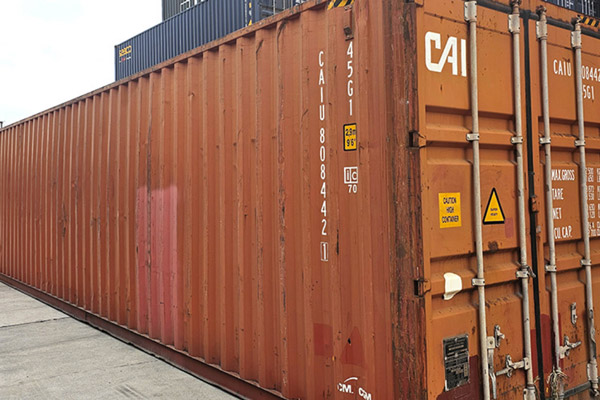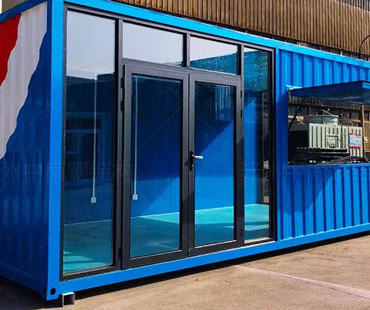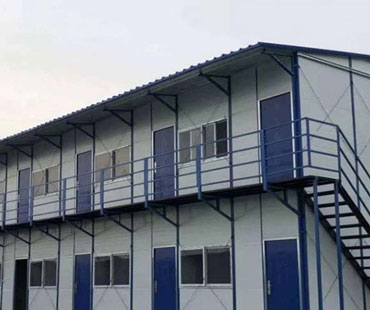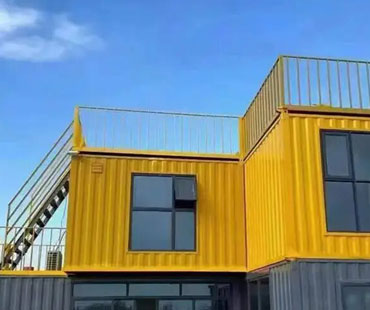In recent years, shipping containers have transcended their traditional role in the transportation of goods. Originally designed for the efficient and secure movement of cargo across oceans and land, these versatile metal boxes have sparked a wave of creativity and innovation, leading to diverse applications that extend far beyond their initial purpose. This article explores the myriad uses of containers today, highlighting their impact on various industries and their potential to address pressing global challenges.
1. Sustainable Housing Solutions
One of the most notable alternative uses of shipping containers is in the construction of homes and housing complexes. With the global housing crisis affecting millions, containers offer an innovative and sustainable solution. They are often repurposed into affordable housing units that can be quickly assembled, providing shelter to those in need. Container homes can be designed to meet modern architectural standards while incorporating energy-efficient features such as solar panels, insulation, and rainwater harvesting systems.
Moreover, container housing projects are increasingly being used in response to natural disasters. Countries affected by hurricanes, earthquakes, or floods can quickly deploy container homes as temporary shelters, ensuring that displaced populations have access to safe living conditions while they rebuild.
2. Creative Workspaces and Offices
Shipping containers have also found their way into the business world, serving as unique and adaptable workspaces. Companies are using containers to create pop-up offices, co-working spaces, and retail shops. The modular nature of containers allows businesses to customize their layouts to fit specific needs, whether they require open areas for collaboration or private offices for focused work.
Additionally, container-based offices can be situated in urban areas where traditional construction is not feasible, providing businesses with a cost-effective solution in prime locations. The aesthetic appeal of repurposed containers can also attract customers, making them an appealing choice for startups looking to establish a brand presence.
3. Innovative Retail Experiences
Beyond serving as offices, shipping containers have revolutionized the retail landscape. Many entrepreneurs are using containers to create pop-up shops, food stalls, and boutiques. This trend allows for flexible retail setups that can be easily relocated based on demand or seasonality. For example, food trucks and container cafes have become popular, offering unique culinary experiences while minimizing overhead costs associated with traditional restaurant spaces.
Furthermore, container markets—where multiple vendors operate from refurbished containers—are emerging in urban centers, fostering community engagement and supporting local businesses. These markets provide consumers with diverse shopping options while creating a vibrant social atmosphere.

4. Agricultural Applications
Shipping containers are also making waves in the agricultural sector through a concept known as container farming. These compact, controlled-environment agriculture systems allow for efficient food production in urban areas and regions with limited arable land. By utilizing hydroponic or aquaponic systems within containers, farmers can grow fresh produce year-round, significantly reducing the distance food must travel from farm to table.
Container farms require less water and land compared to traditional farming methods, making them a sustainable option for meeting the demands of a growing population. This innovation not only addresses food security but also reduces the environmental impact associated with conventional agriculture.
5. Educational Facilities
Educational institutions are beginning to embrace the use of shipping containers as classrooms and learning spaces. Container schools can be constructed rapidly and affordably, providing students in underserved areas with access to education. These repurposed containers can be equipped with modern technology, offering innovative learning environments that promote collaboration and creativity.
Additionally, container classrooms can be designed to be environmentally friendly, incorporating renewable energy sources and sustainable materials, thus teaching students the importance of sustainability and ecological responsibility.
6. Art and Cultural Spaces
The arts community has also recognized the potential of shipping containers for creative expression. Artists are transforming containers into galleries, studios, and performance spaces, pushing the boundaries of traditional art venues. Container art installations can be found at festivals, public events, and urban revitalization projects, bringing art directly to communities in a dynamic and engaging way.
Moreover, container conversions for cultural purposes often serve as interactive spaces for workshops, exhibitions, and community gatherings, fostering creativity and collaboration among artists and the public.
The evolution of shipping containers from mere transport units to multifaceted resources demonstrates the power of innovation and creativity in addressing contemporary challenges. Their diverse applications—from housing and workspaces to agriculture and education—highlight the potential for sustainable solutions that can meet the needs of an ever-changing world.
As society continues to explore and expand on the possibilities of container usage, it is crucial to recognize the role these versatile structures can play in promoting sustainability, creativity, and community engagement. The future of containers is bright, and their impact will undoubtedly shape our urban landscapes and lifestyles in the years to come.


